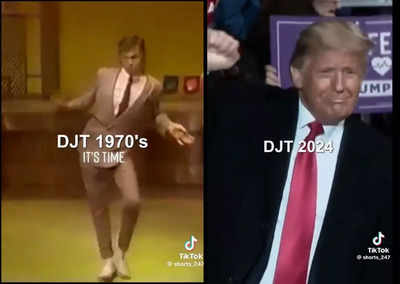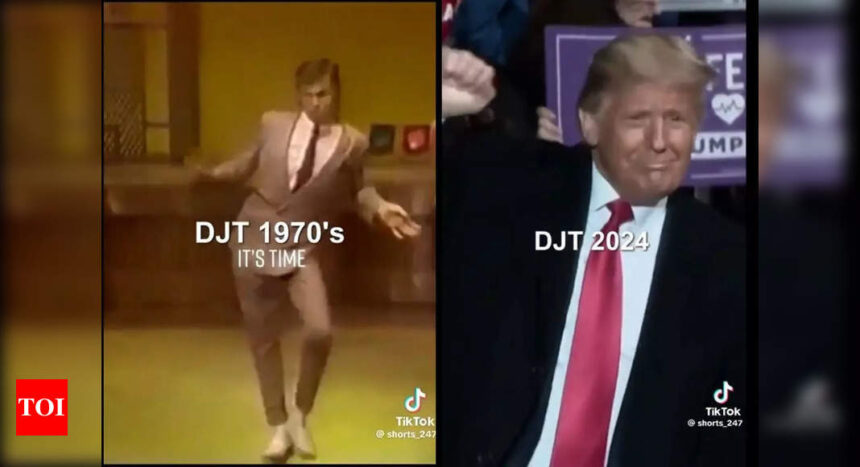
A video circulating on social media has gone viral, claiming to feature President-elect Donald Trump sporting a mullet and dancing on an episode of Soul Train from the 1980s. While the clip has amused viewers and sparked widespread curiosity, the claim is entirely false. The video in question originated from the May 2, 1987, episode of Soul Train and shows a dancer grooving to Nona Hendryx’s song “Why Should I Cry.” Despite the resemblance suggested by some captions, there is no connection between the dancer and Donald Trump.
Archives of Trump’s public appearances from the 1980s, including photographs from Getty Images, confirm that his hairstyle during that era did not resemble the mullet seen in the video. Additionally, the dancer’s slim physique does not match Trump’s build at the time. The original Soul Train footage, which remains accessible on YouTube, further debunks the claim by showing the dancer without any manipulated captions or soundtracks.
Another one claimed that this was Trump dancing in the 1970s. However, the song playing in the first video of Trump is Blue (Da Ba Dee) came out in 1998. Blue (Da Ba Dee) is a track by the Italian music group Eiffel 65. Initially released in October 1998 in Italy under Skooby Records, the song gained international recognition the following year. It served as the lead single from the group’s debut album, Europop, released in 1999. It was memorably used in a scene the Marvel Cinematic Universe, namely in the opening sequence of Iron Man 3.
There is also no record of Trump ever appearing on Soul Train or participating in any televised dancing during that time. During the late 1980s, Trump was focused on his real estate ventures and media appearances related to his business success, making such an appearance highly unlikely.
Although Trump never danced on Soul Train, his tendency to dance has become part of his public persona. During his 2020 campaign rallies, Trump was frequently seen dancing to the Village People’s iconic hit “YMCA,” a moment that resonated with his supporters and gained significant media attention. The lighthearted and humorous moves became a signature feature of his events.
“YMCA,” released in 1978 by the Village People, has become a global phenomenon, transcending decades and cultures as one of the most popular dance tracks of all time. Its catchy chorus and uplifting tempo make it a universal party anthem. The song’s accompanying dance, where participants spell out “Y-M-C-A” with their arms, has become a staple at celebrations worldwide.
Beyond political rallies, the song has found a special place in sports culture, particularly in football. Fans and players alike have embraced it as a way to celebrate victories or energize crowds, with teams and individuals often breaking into impromptu dances during matches or training sessions, delighting audiences.
From viral internet videos to stadiums packed with fans, “YMCA” continues to bring people together through music and dance. Whether shared as a humorous clip or celebrated in sports and politics, its enduring appeal highlights the universal joy of rhythm and movement.








